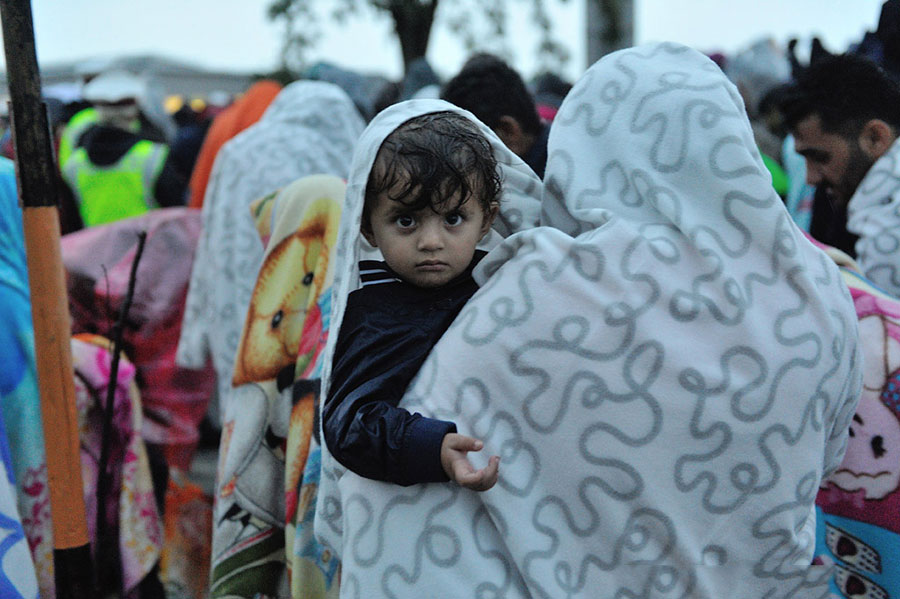The Syrian crisis is the world’s worst humanitarian disaster. The EU is the leading donor in the international response to the Syrian crisis, with over €9 billion from the EU and Member States collectively allocated in humanitarian and development assistance since the start of the conflict.
Since 2011, the European Commission’s support in response to the Syrian crisis has exceeded €3.6 billion, including both immediate humanitarian assistance, and nonhumanitarian aid, which responds to immediate and medium-term needs.
At the Supporting Syria and the Region conference, the EU and the Member States pledged over €3 billion for the year 2016 to assist people inside Syria as well as Syrian refugees and the communities hosting them in neighbouring countries.
The European Commission pledge for the 2016 amounts to €1.115 billion. The Commission has also given an indicative amount for 2017 of €1.275 billion, bringing the total pledge for the two years to €2.39 billion. These funds will mostly come from humanitarian assistance and the European Neighbourhood Instrument. The remaining part of the 2016 pledge will be delivered by EU Member States.
Humanitarian assistance
The Commission has so far provided €1.4 billion humanitarian assistance for life-saving emergency response, food, water, sanitation, hygiene and shelter to millions of Syrians inside Syria and in neighbouring countries.
Inside Syria, thanks to lifesaving aid provided by the Commission, some 2 million people have gained access to safe water, sanitation and hygiene items, 850 000 people have received food, 1 million people have received non-food items and shelter, and 350 000 children have been covered by child protection programmes.
The EU’s humanitarian aid is impartial and independent and goes to people in need regardless of ethnic or religious considerations. The EU’s humanitarian aid is channeled through the United Nations, International Organisations, and international NGO partners.
Non-humanitarian assistance
The Commission has mobilised over €2 billion in non-humanitarian aid, including:
- €664 million through the European Neighbourhood Instrument (ENI) to address the medium term needs of civilians inside Syria as well as of refugees and hosting communities in the region (education, livelihoods, local governance, health, access to basic services);
- €380 million through Macro-financial Assistance (MFA) to Jordan to assist with the influx of Syrian refugees;
- €198 million through the Instrument contributing to Stability and Peace for assistance programmes in opposition-controlled areas in Syria, mediation efforts, transitional justice preparation and measures to reduce tensions between refugees and host communities in the region, as well as to support the destruction of Syrian chemical stockpiles and chemical threat prevention;
- €242 million through the Instrument for Pre-Accession Assistance (IPA) to Turkey;
- €26 million through the European Instrument for Democracy and Human Rights;
- €61 million through the Development Co-operation Instrument (DCI)
- €908 million channelled through the EU Regional Trust Fund in response to the Syrian crisis (including from the above mentioned instruments ENI, IPA and DCI)
Since its establishment in December 2014, most non-humanitarian aid for Syria’s neighbouring countries is channelled through the EU Regional Trust Fund in response to the Syrian crisis, the ’Madad Fund’ (EUTF Madad). The EUTF aims to bring a more coherent and integrated EU response to the crisis by merging various EU financial instruments and contributions from Member States into one single flexible mechanism for quick disbursement. The Trust Fund primarily addresses longer term resilience needs of Syrian refugees in neighbouring countries such as Jordan, Lebanon, Turkey and Iraq, as well as the hosting communities and their administrations.
The mandate of the Trust Fund has been extended so that it can also operate in the Western Balkans where relevant to the flow of Syrian refugees. In the future the Trust Fund may also start financing resilience activities inside Syria and could become a funding tool for reconstruction, resettlement and governance support following a political settlement of the crisis. With contributions and pledges from 22 Member States, amounting to over €82 million, and contributions from various EU instruments, the Fund will reach a total volume of €1 billion by early 2017. Large programmes focusing on education, livelihoods, health have already been adopted by the Fund’s Board for a total of €767 million.
So far, the EU Trust Fund has allocated €282 million to support education needs in the region (€232.7 million for primary education and €49.3 million for higher education).
The programmes aim to reach children and young people who have fled the war in Syria to take refuge in Jordan, Lebanon and Turkey. Children and youth in host communities will also benefit. The services provided to the children include access to quality education, protective services and civic and entrepreneurship opportunities. Furthermore, the EUTF for Syria is helping improve access to quality higher education, distributing scholarships to vulnerable and internally-displaced students in Syria, Syrian refugees and vulnerable host communities in the region. A total of 3,847 full scholarships, 5,741 language courses and 40,000+ counselling sessions will be provided in the coming four years allowing students to attend and complete undergraduate and master’s degrees, professional courses and language classes in key sectors like nursing, pharmacy, education, engineering and business administration, among others.
Since the on-set of the Syrian crisis, substantial non-humanitarian assistance inside Syria has also been provided by the Commission through the European Neighbourhood Instrument, targeting in particular education, livelihoods and civil society support. Thanks to this financial support, 2.3 million children have had improved access to education at primary and secondary school level (over 4,000 schools reached).
Furthermore, more than 11,367 emergency job-opportunities for Syrians have been created (including 4,000 job opportunities for women) and numerous micro-grants for small-size businesses have been provided. More than 85,000 Syrians inside Syria have benefitted from improved community-based activities thanks to the strengthening of grassroots civil society activities.
In addition, Commission funds from the European Instrument for Democracy and Human Rights have also supported the protection of Human Rights Defenders as well as capacitybuilding of Syrian journalists.
More information is available here



